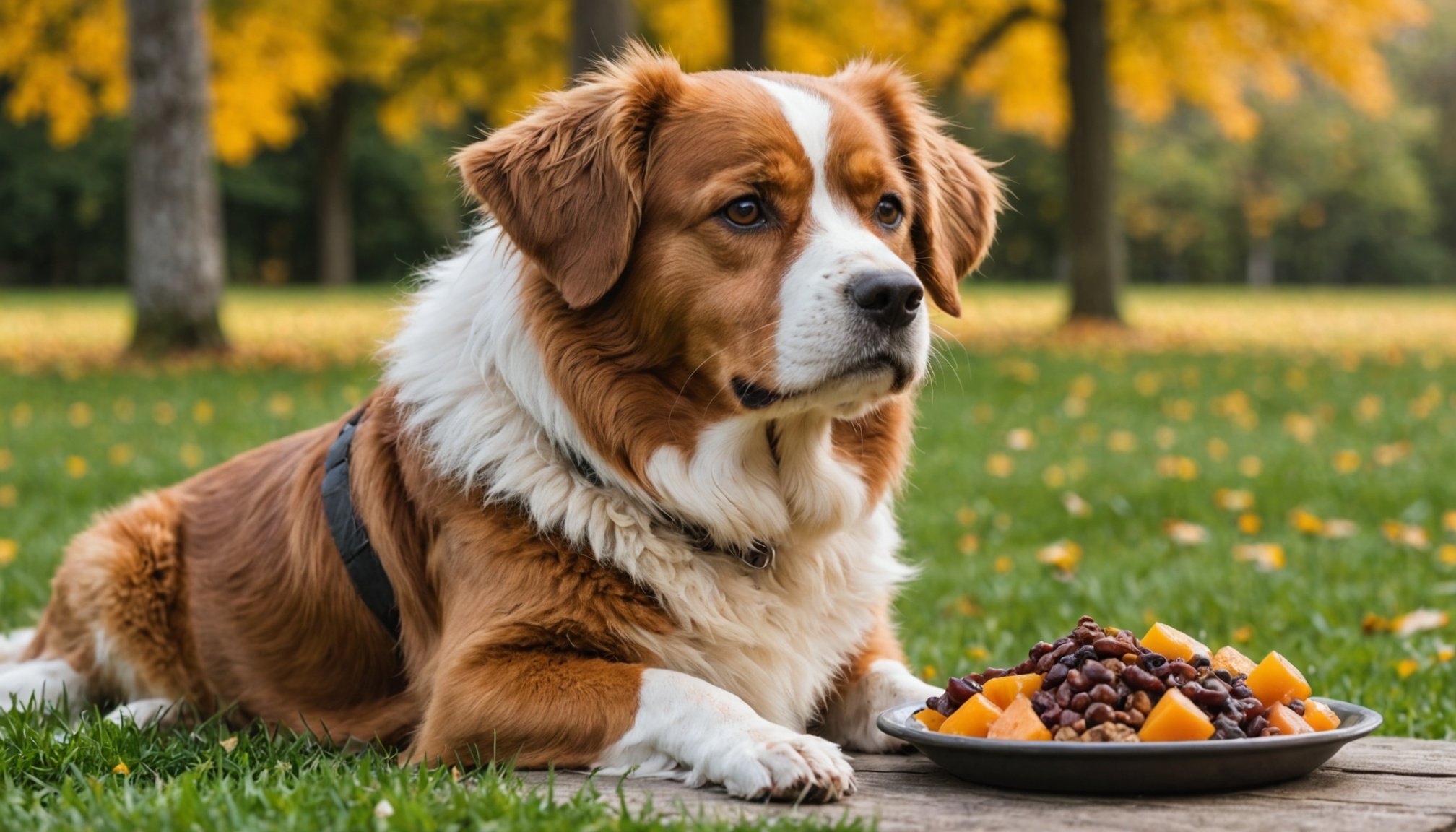Understanding Liver Disease in Dogs
Liver disease in dogs can be a distressing condition, often presenting with subtle yet telling symptoms. Recognising the symptoms of liver disease is crucial for early detection and intervention. Dogs with liver issues might exhibit vomiting, diarrhoea, increased thirst, and disorientation. Observing any yellowing of their eyes or gums, also known as jaundice, is a significant indicator.
The liver plays a vital role in numerous bodily functions. It aids digestion, detoxifies the blood, and stores energy. When compromised, a dog’s overall health significantly deteriorates. Various causes of liver disease exist, ranging from genetics to exposure to toxins. Some breeds are genetically predisposed, while factors such as poor diet, infections, and prolonged exposure to harmful substances can also contribute.
Additional reading : Top-Notch Strategies for Socializing Your Puppy with Other Pets: Expert Insights and Proven Techniques
Risk factors should not be underestimated. Aging dogs, those with obesity, or those on certain medications are at a higher risk. As pet owners, understanding these causes of liver disease and symptoms is imperative. Taking preventative measures can mitigate severe health outcomes, providing your furry companion with a longer, healthier life. Being proactive in noticing irregular behaviours or changes in your dog’s energy levels is key to effective management and treatment.
Nutritional Needs for Dogs with Liver Disease
Addressing the nutritional needs of dogs with liver disease is fundamental in managing their health effectively. Ensuring a balanced diet is crucial as it supports liver function and contributes to overall wellbeing. Essential nutrients that aid in liver recovery include high-quality proteins, omega-3 fatty acids, and antioxidants. These components play a role in repairing liver tissue and reducing inflammation.
Also to see : Taming Energetic Pooches: Your Ultimate Guide to Reducing Excessive Barking
When formulating a diet for dogs with liver concerns, consider specific dietary requirements. Protein is essential, yet the type matters; focus on easily digestible sources such as eggs or cottage cheese. Omega-3 fatty acids found in fish oils support anti-inflammatory processes beneficial for liver health. Antioxidants like vitamin E may help mitigate oxidative stress.
Caloric intake tailored to the individual’s condition and ensuring proper portion control prevents excessive strain on the liver. This involves calculating daily calorie needs based on the dog’s size, weight, and activity level. Additionally, feeding smaller, more frequent meals can alleviate the digestive burden on a compromised liver.
Consulting with a veterinarian or a pet nutritionist can provide guidance on creating a specific diet plan that aligns with your dog’s unique needs, promoting optimal liver health outcomes.
Dietary Restrictions and Considerations
When managing liver disease in dogs, understanding and adhering to dietary restrictions is crucial. Certain foods to avoid can worsen liver problems. High-fat foods, for instance, place additional stress on a compromised liver, potentially leading to more significant health issues. Avoiding processed foods with excessive harmful additives and preservatives is equally important, as they can exacerbate liver damage.
Food safety should not be overlooked when preparing meals for dogs. Always ensure food is fresh and properly stored to prevent spoilage. Contaminated food can introduce toxins that further stress the liver. Avoid ingredients known to be toxic to dogs, like onions and garlic, as they can lead to further complications.
Being mindful of these considerations not only helps in managing liver disease effectively but also supports overall health. Additionally, understanding the importance of avoiding toxins throughout your dog’s environment, not just in food, can prevent additional strain on the liver. Safe feeding practices and choosing whole, natural ingredients provide a solid foundation for a liver-supportive diet. Talk to a veterinarian if unsure about certain foods or if seeking guidance on creating a safe meal plan for your pet.
Recommended Food Options
When selecting the best dog food for liver disease, both commercial and home-cooked options can be ideal if chosen carefully. Liver-friendly diets often include high-quality proteins and lower quantities of sodium and copper, which can help reduce the liver’s workload.
For commercial dog foods, choose brands specifically formulated for liver support. These foods are typically lower in fat and phosphorus, and often contain ingredients beneficial for liver health, like omega-3 fatty acids. Look for veterinary-approved options that are well-balanced and tailored to your dog’s needs.
For home-cooked meals, it is crucial to focus on easily digestible proteins like turkey or chicken breast. Additionally, mixing in complex carbohydrates such as sweet potatoes can provide sustained energy. Leafy greens and carrots, rich in antioxidants, can also help support liver function.
When it comes to protein types, opting for proteins with a high biological value, such as eggs, can be beneficial. However, consult with your veterinarian to ensure that the proportions are right for your dog’s specific condition. Keeping the diet balanced and well-measured supports liver health and can lead to better overall wellbeing for your furry friend.
Meal Plans and Recipes
Creating meal plans for dogs with liver disease involves more than just choosing liver-friendly ingredients—it’s about ensuring balanced meals that meet their unique nutritional needs. Recipes for dogs focusing on liver health should highlight easily digestible proteins like chicken or turkey, paired with complex carbohydrates such as brown rice.
Optimise nutrient intake through these recipes:
-
Chicken and Brown Rice Delight: Boil 300g of skinless chicken breast and mix it with 150g of cooked brown rice. Add a handful of steamed carrots and blend well for nutrient density.
-
Fish and Sweet Potato Special: Oven-bake a white fish fillet and combine it with mashed sweet potato. Enrich with a dash of olive oil for added omega-3.
Feeding guidelines suggest offering smaller portions more frequently to aid digestion and reduce the liver’s workload. Regularly adapt these recipes based on your dog’s preferences and tolerances, keeping them pleasant and stress-free.
For individual preferences, introduce minor variations gradually. Consider your pet’s peculiar likes and dislikes to maintain enjoyment in their meals. Consistent meals, combined with personalised adjustments, support overall health while managing liver concerns effectively.
Supplements and Additional Support
Dietary supplements can play a critical role in supporting liver health in dogs. When considering liver supplements, key ingredients such as milk thistle, SAM-e (S-adenosylmethionine), and omega-3 fatty acids are often beneficial. These compounds have properties that aid in liver recovery, reduce inflammation, and support overall organ function.
Incorporating vitamins for dogs is another avenue for maintaining liver health. Specifically, vitamins E and C are known for their antioxidant properties, which may help protect liver cells from damage. Minerals like zinc can also be advantageous, as they assist in detoxification processes.
Before adding supplements to your dog’s routine, consult your veterinarian. They can provide tailored advice based on your dog’s specific condition and health status. A professional assessment ensures the recommended supplements are appropriate and avoid potential interactions with existing medications.
Though supplements can be beneficial, they are not a replacement for a balanced diet. Always combine their use with appropriate feeding practices to achieve the best results for liver function support. Ensuring that any supplement is specifically designed for canine use is crucial to avoid unintended health complications. Regular monitoring and veterinary guidance enhance the efficacy of dietary supplements in liver management.
Veterinary Advice and Monitoring
Addressing liver disease in dogs involves more than dietary adjustments—it necessitates vigilant veterinary care. Regular check-ups are essential, as they enable early detection of liver-related complications and help in monitoring health. These visits can include blood tests, ultrasounds, or biopsies, providing detailed insights into the liver’s condition.
Prompt veterinary attention is crucial when certain signs appear. Symptoms such as rapid weight loss, severe vomiting, or noticeable jaundice must not be overlooked. Immediate action can prevent further liver deterioration and reduce associated risks.
Collaborating with your vet facilitates the effective management of your dog’s diet and overall health. Professionals can create tailored dietary plans that consider specific liver issues and ensure optimal nutrient balance. Additionally, they can help adjust strategies as your dog’s condition changes over time, ensuring personalised and effective care.
Adhering to veterinary advice can minimise complications and promote recovery. Regular assessments are vital for tracking liver health progress and making informed decisions. Proactively working with a veterinarian helps maintain a dog’s wellbeing, significantly improving life quality even with a liver condition.
Potential Pitfalls to Avoid
When caring for a dog with liver disease, common mistakes in diet can hinder recovery. A prevalent error is making sudden dietary changes. Abrupt transitions can upset a dog’s digestive system, exacerbating health issues. Instead, introduce new foods gradually to minimize stress on the liver and ensure a smooth adaptation process.
Feeding errors, such as providing incorrect portion sizes, can lead to further complications. Overfeeding not only burdens the liver but can also contribute to obesity, worsening the condition. Monitoring the dog’s weight and adjusting portions accordingly is essential for maintaining optimal health.
Misunderstanding individual dietary needs is another pitfall. Dogs respond differently to dietary changes; observing specific reactions is crucial. Some foods that seem suitable might cause adverse effects, so paying attention to your pet’s behaviour and digestion is key.
Lack of awareness regarding foods to avoid, particularly those with harmful additives, can also harm the liver. Processed foods should generally be avoided to reduce the risk of aggravating the condition. Staying informed and vigilant about dietary decisions and working in conjunction with veterinary advice supports the management of liver disease effectively.





